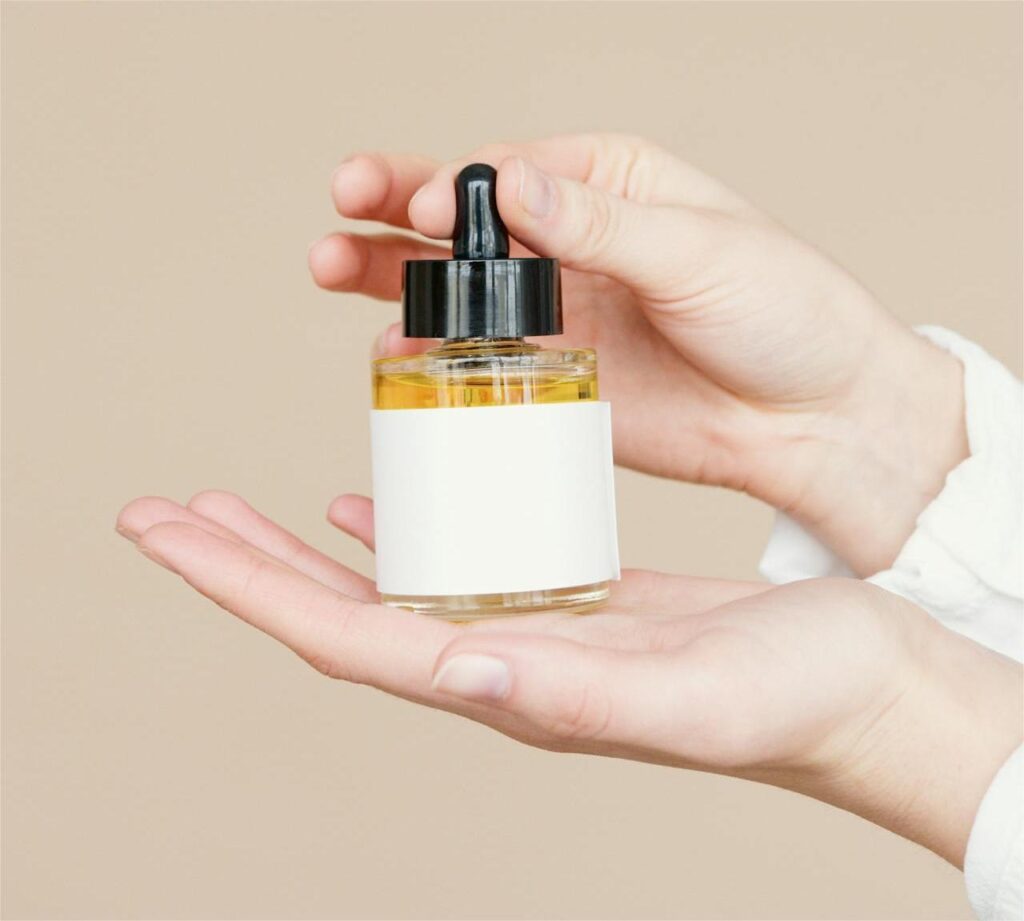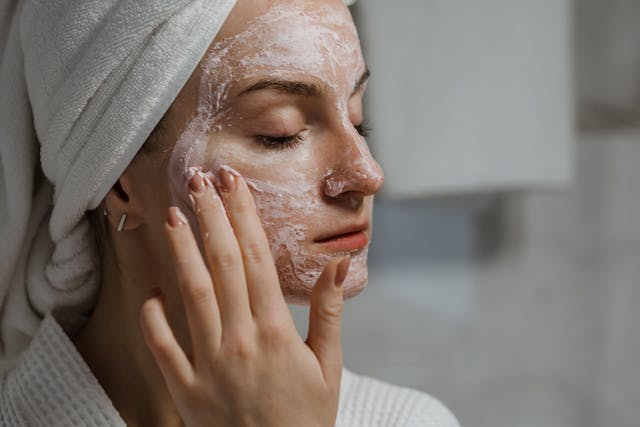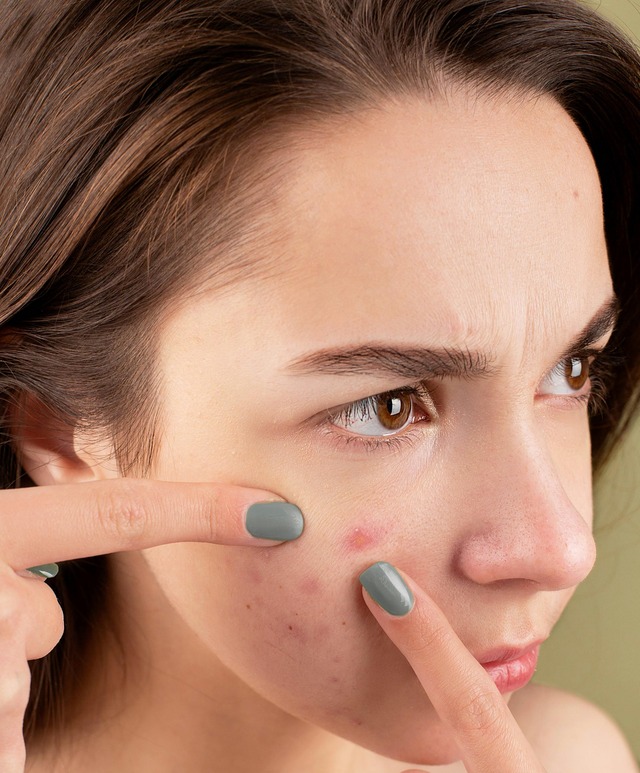- Introduction
- The Science Behind Oil-Based Skincare Products
- How Oils Enhance Your Skincare Routine
- Vegetable vs. Essential Oils: What You Need to Know
- Essential Oils vs. Vegetable Oils: Key Differences
- The Various Uses and Properties of Skincare Oils
- How to Safely Use Essential Oils in Skincare
- How to Effectively Use Oils for Glowing Skin
- Safety and Precautions
- The Role of Oils in Effective Moisturization
- Conclusion
Introduction
Oils have become essential in many skincare routines due to their versatility and numerous benefits. Unlike what some might think, they aren’t just for dry skin; different oils serve various purposes and can benefit every skin type. Whether you’re aiming to hydrate, balance, or protect your skin, sensing the unique properties of each oil can help you make informed choices for your skincare routine.
The Science Behind Oil-Based Skincare Products
Oil-based products, such as balms and oils, play a crucial role in moisturizing and protecting the skin, especially for those with dry skin or living in cold/dry climates. These products primarily function through two key moisturizing components: occlusives and emollients.
Occlusives: These act as a physical barrier on the skin, preventing moisture from evaporating and protecting it from external irritants. By sealing the skin’s surface, occlusives help maintain hydration levels, which is particularly important for dry skin.
Emollients: Emollients soften the skin, improve its elasticity, and strengthen the skin barrier. They fill in the gaps between skin cells, resulting in a smoother surface and enhanced skin texture.
While occlusives and emollients are essential, they are not enough on their own. Dry skin also needs water and humectants—substances that bind water to the skin—to stay hydrated. Without these, water alone is insufficient, as it often evaporates from the skin shortly after washing, along with the skin’s natural oils. Frequent washing without proper moisturizing can lead to increased dryness.
How Oils Enhance Your Skincare Routine
Both natural and mineral oils share a common function in skincare: they help lock moisture into the skin, preventing it from evaporating. However, natural oils offer additional benefits that mineral oil does not.
Natural oils contain various vitamins, fatty acids, antioxidants, and other nutrients that support skin health. These components work together to not only soften the skin but also nourish and protect it in ways that cannot be replicated by mineral oil alone.
Different natural oils have unique compositions, which means they affect the skin differently. This versatility makes them powerful ingredients in skincare.
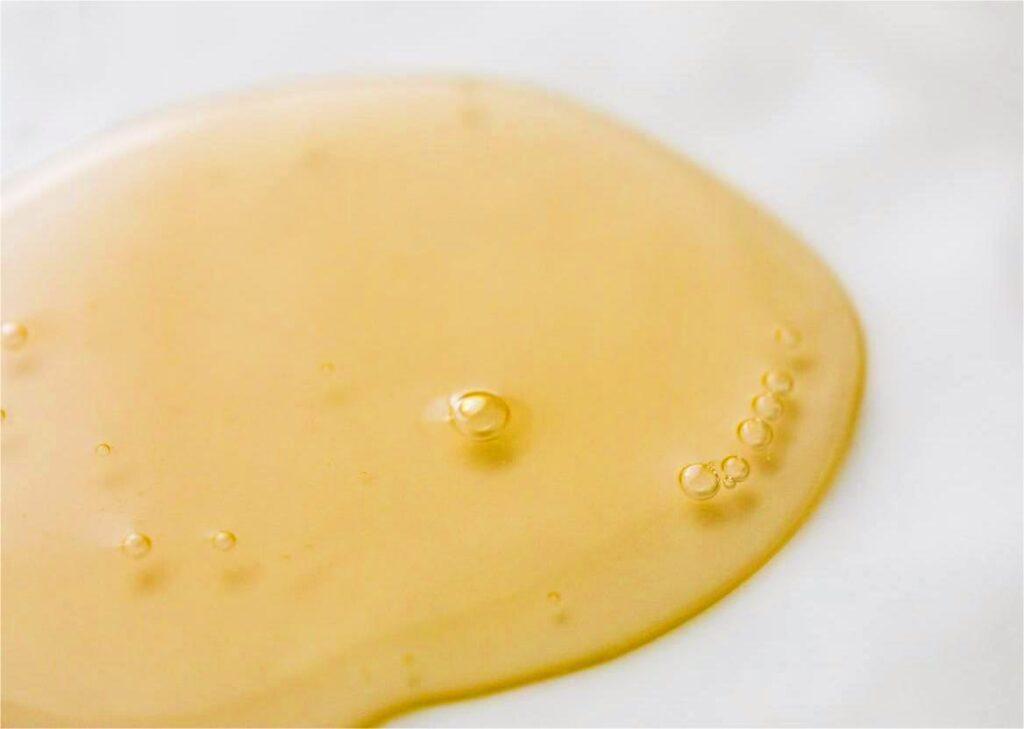
Vegetable vs. Essential Oils: What You Need to Know
Vegetable oils and essential oils are two types of products often confused, but they present important differences both in their composition and in their uses. Understanding these distinctions is essential to make the most of their beneficial properties while avoiding any health risks.
Vegetable Oils
Vegetable oils are fats extracted from seeds, fruits, or oil-bearing plants such as almonds, olives, or borage. They are obtained by cold pressing or chemical processing of raw materials to obtain a fluid and greasy texture. Vegetable oils are rich in essential fatty acids, antioxidants, and vitamins, preserved when they are extracted by cold pressing. These oils are used in cosmetics for their moisturizing, nourishing, regenerating, and protective properties for the skin.
Essential Oils
Essential oils are concentrated extracts of aromatic plants obtained by steam distillation of different parts of the plant, such as leaves, flowers, bark, or roots. They can also be obtained by cold-pressing fresh citrus peels. Essential oils are highly concentrated volatile compounds, containing the active principles of the original plant.
They must be used with caution and diluted in a base, such as vegetable oil, cream, or shampoo, as they can be irritating or allergenic, especially for children, pregnant or breastfeeding women, and sensitive individuals. It is important to choose essential oils certified as 100% pure and natural, coming from plants grown without pesticides and distilled under quality standards
Essential Oils vs. Vegetable Oils: Key Differences
Vegetable oils and essential oils are two different types of oils. Vegetable oils are extracted from seeds, fruits, or nuts, while essential oils are concentrated extracts from aromatic plants.
Vegetable oils are fatty oils used for cooking, cosmetics, and skincare. They are rich in fatty acids and vitamins, possessing nourishing, protective, softening, and regenerative properties beneficial for the skin. Vegetable oils are also used as a base to dilute essential oils before topical application.
Essential oils, on the other hand, are concentrated extracts from aromatic plants used for their therapeutic properties and health benefits. Essential oils are used in aromatherapy to relieve stress, promote sleep, alleviate muscle and joint pain, boost immunity, improve digestion, and more. They are also used in perfumery, cosmetics, and the food industry.
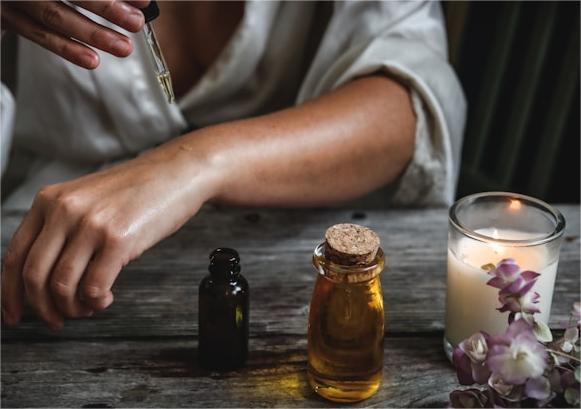
The Various Uses and Properties of Skincare Oils
Vegetable oils are mainly used in cosmetics to moisturize, nourish, and protect the skin, while essential oils are used for their various therapeutic properties, such as aromatherapy, and relaxation, or their antibacterial, antifungal, or anti-inflammatory properties.
How to Safely Use Essential Oils in Skincare
Vegetable oils are generally well tolerated by the skin. They can be used undiluted, whereas essential oils should always be diluted in a base and used cautiously due to their high concentration of active ingredients.
It is important to note that essential oils are not medications and should not be used to replace medical treatment. If you are considering using essential oils to treat a medical condition, it is recommended to consult a qualified healthcare professional before starting any treatment.
How to Effectively Use Oils for Glowing Skin
Oils can be used in various ways in your skincare routine, depending on your skin type and concerns:
- Moisturizer: Oils can be used as a final step in your skincare routine to lock in moisture. Apply them after a water-based serum or moisturizer.
- Cleansing Oil: Oils are also effective as the first step in a double-cleansing routine. They help dissolve makeup and impurities without stripping the skin of its natural oils.
- Spot Treatment: Certain essential oils, like tea tree oil, can be applied directly to blemishes to reduce inflammation and kill bacteria.
- Massage Oil: Oils like lavender or chamomile can be used in facial massages to relax the muscles and improve blood circulation.
Safety and Precautions
While oils can be incredibly beneficial, it’s important to use them correctly:
- Dilution: Essential oils should always be diluted in a carrier oil (like jojoba or almond oil) before applying to the skin to avoid irritation or allergic reactions.
- Patch Test: Always do a patch test before using a new oil to ensure you don’t have an adverse reaction.
- Storage: Store oils in a cool, dark place to prevent them from going rancid.
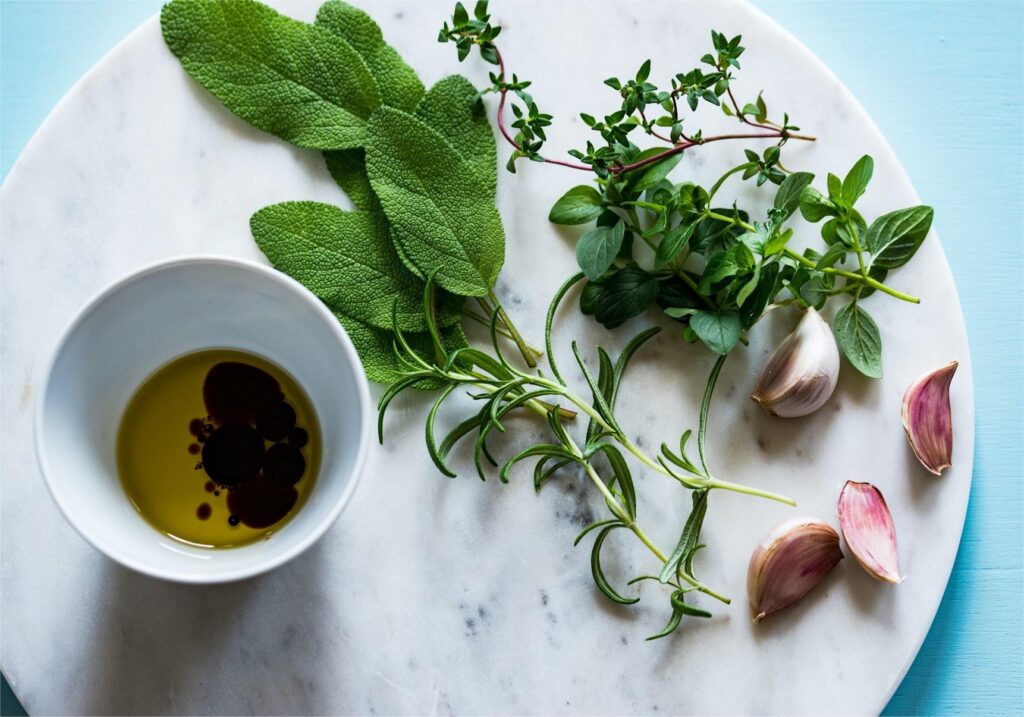
The Role of Oils in Effective Moisturization
Essential oils are natural superpowers, extracted from various vegetables, fruits, flowers, and herbs. Each oil has many different purposes. To choose which moisturizer is right for you, you need to understand the different benefits of these oils and determine which ones are best suited for your skin type.
Vegetable Oils
Vegetable oils are rich in nutrients that hydrate, soothe, soften, strengthen, and protect your skin. Many vegetable oils contain antioxidants that are beneficial to your overall health. The most popular example is olive oil. There are several ways that olive oil can be used, not only for your skin but also for your hair! It can be used as a pre-shampoo treatment for – you guessed it – moisturizing purposes.
Olive oil
Olive oil can be used as a night cream and a daily moisturizer. It can even be used as a first step to remove makeup. Olive oil is known for its moisturizing properties and can be used to treat particularly dry skin, such as eczema. It leaves the skin feeling supple and smooth.
Argan oil
Argan oil and jojoba oil are a few other popular vegetable oils and they are popular for a reason: they have incredible benefits when used. Argan oil helps to reduce inflammation. Because the chemical composition of jojoba oil is similar (though not exactly) to sebum, the oil naturally produced by our bodies, can be used for almost anything.
Jojoba Oil
Jojoba oil, extracted from the seeds of the Simmondsia chinensis plant, is renowned for its similarity to the skin’s natural sebum. This characteristic makes it an excellent moisturizer and balancing agent. Jojoba oil closely resembles human sebum, it helps regulate oil production, making it ideal for both oily and dry skin types. It can provide moisture without causing additional oiliness. It contains antioxidants like Vitamin E, which help combat oxidative stress and protect the skin from environmental damage.
Fruit Oils
It’s a necessity in guacamole, but avocado is both delicious and good for your skin. It’s high in vitamins and minerals, which is why it’s used in many moisturizers. It’s great for softening and hydrating your skin.
One of the popular fruit oils is coconut oil, which can protect your skin from everyday bacteria – it’s antiviral. It not only cleanses your face but also contributes to its health and vitality. It’s great for oily skin, but it can also be drying – so complement it with another oil like jojoba or argan to give your skin the moisture it needs.
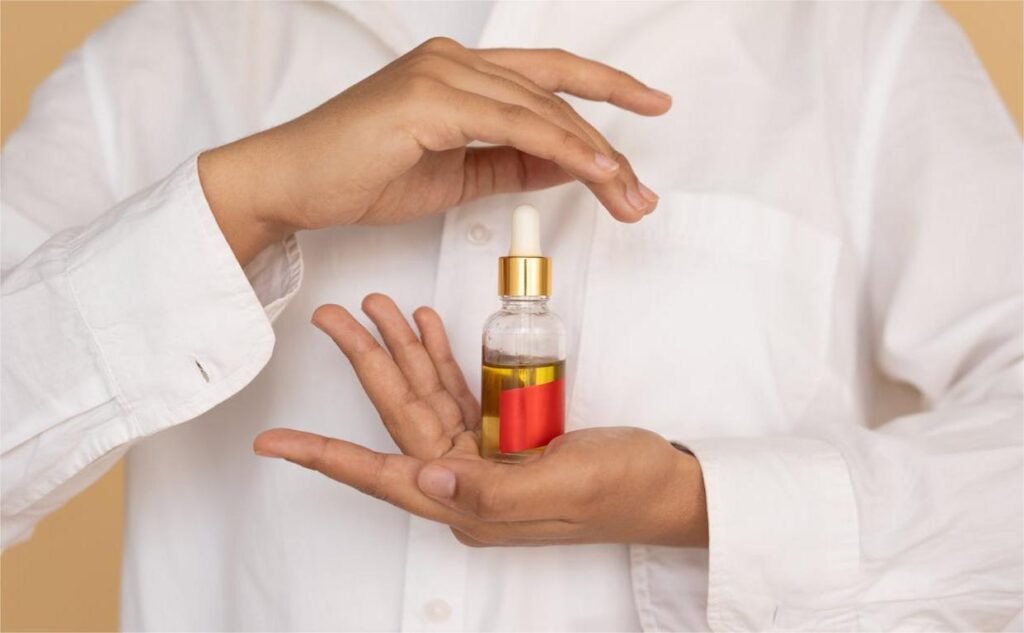
Herbal Oil
Rose oil, with its deep scent used in cosmetics and perfumes, has benefits that go beyond smelling good (although the floral aroma is always a bonus). It has healing properties on both a physical and therapeutic level. Rose oil provides relief from dryness, rashes, and inflammation.
It can also treat headaches and coughs, so its value goes beyond skin deep. Additionally, rose oil strengthens hair roots and fights disease as a bactericide. Spiritually, it is the perfect oil for emotional wounds and is known to help with depression and anxiety.
Lavender
Lavender is another popular flower whose oil has many benefits. According to dermatologists and aromatherapists, lavender oil is a valuable ingredient in the treatment of acne. It relieves inflammation of the skin. It is also known to aid blood circulation, help treat the respiratory tract, and even disinfect the skin.
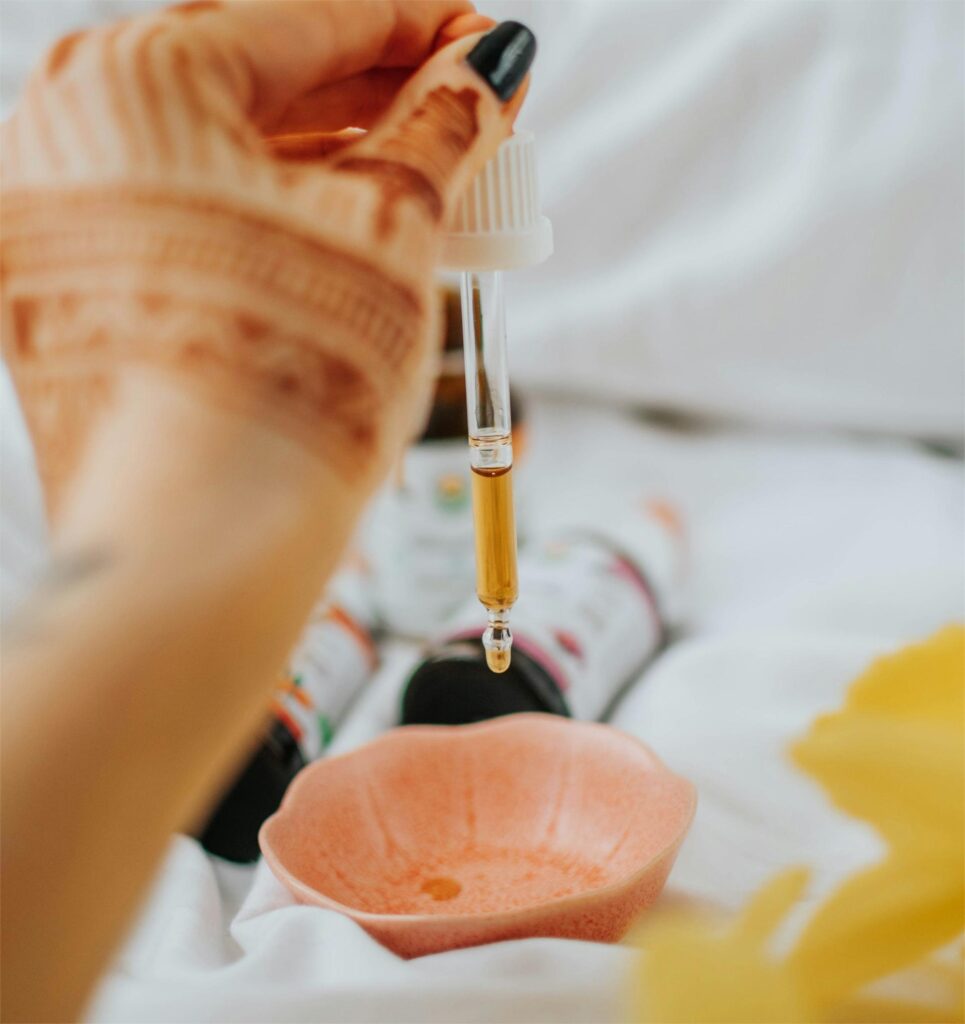
Like rose oil, lavender oil has a calming effect, relieves headaches, and helps with depression. As a bonus, lavender is a natural insect repellent, so swapping chemical bug spray for a more natural alternative has never smelled better.
Conclusion
Choosing the right oil for your skincare routine can feel a bit formidable, but it’s all about finding what works best for you. Whether you prefer the richness of vegetable oils or the unique benefits of essential oils, each has something special to offer. Remember, taking care of your skin is a personal journey, and finding the right oil can make all the difference. Grab the process, and let your skin enjoy the natural care it deserves.
